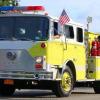Sign in to follow this
Followers
0

Lights, Sirens and Liability!
Started by
RWC130,
-
Recently Browsing 0 members
No registered users viewing this page.

Started by
RWC130,
No registered users viewing this page.